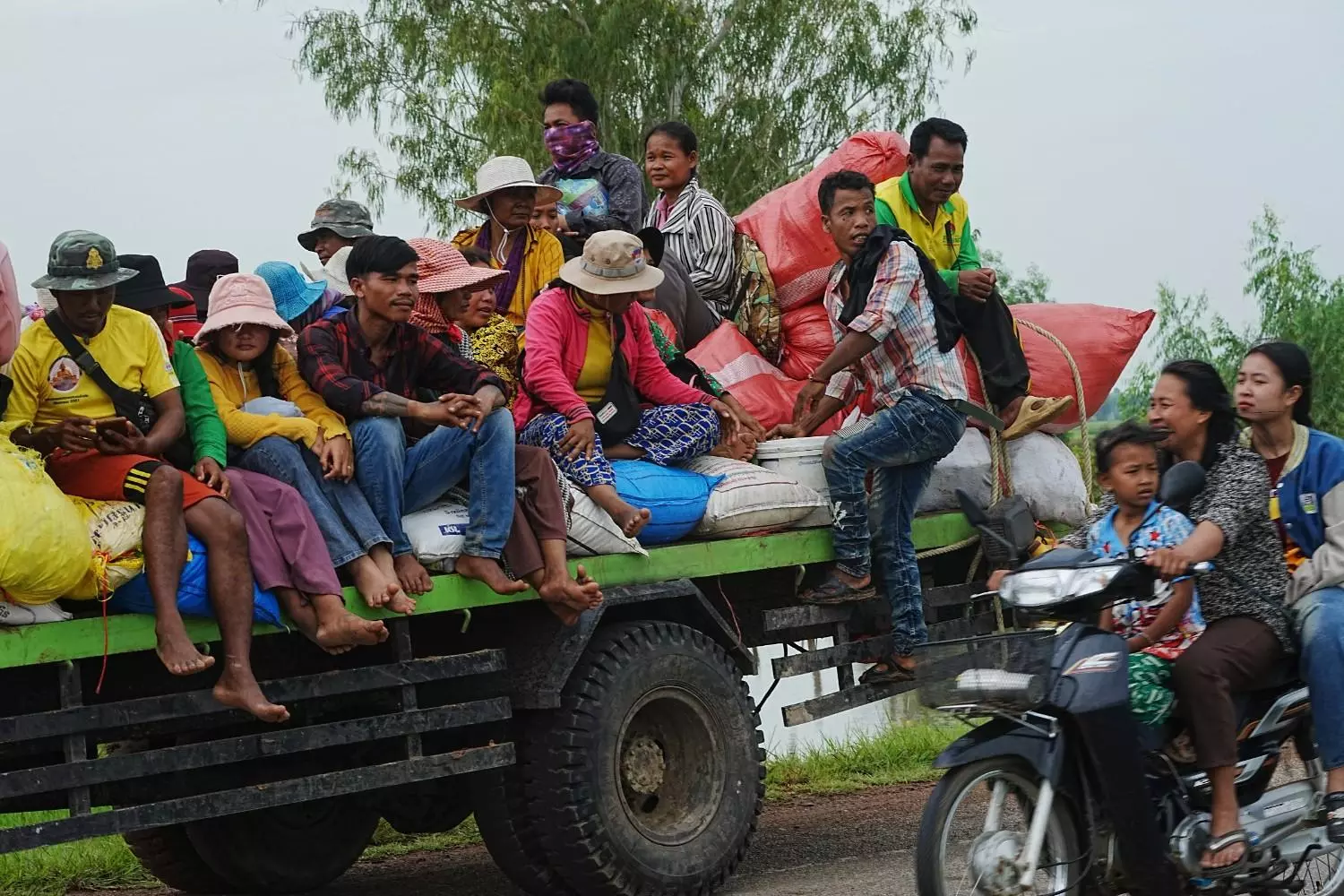
Cambodia seeks 'immediate' ceasefire with Thailand amid deadly clashes
Indian embassies in both Thailand and Cambodia advise Indian nationals against venturing out into the border areas of the two countries

Glimpses of hope returned in Southeast Asia on Friday (July 25) when Cambodia sought an “immediate” ceasefire with Thailand after border clashes between the two neighbours saw deaths of more than 30 people, including civilians, since it began a day before.
However, the Indian embassies in both Thailand and Cambodia have advised Indian nationals against venturing out into the border areas of the two countries.
Chhea Keo, Cambodia’s ambassador to the United Nations, said Phnom Penh sought for a truce “unconditionally”, adding that it wanted the dispute to see a “peaceful solution”, AFP reported, quoting the diplomat.
“Cambodia asked for an immediate ceasefire — unconditionally — and we also call for the peaceful solution of the dispute,” Keo was cited as saying by the agency.
Also read: Thailand-Cambodia War: Why tensions escalated
He made his statement after a closed meeting of the Security Council where representatives of both countries were present.
Thailand did not make any remark publicly and rejected a third-party mediation proposed by Malaysia. Earlier, it declared martial law in eight districts bordering Cambodia.
At least 32 dead
At least 32 people lost their lives while nearly 200,000 were displaced in the two countries that have accused each other of triggering the crisis on Thursday (July 24). Nineteen people were killed in Thailand while 13 in Cambodia, confirmed their respective official sources. Twenty-one of the casualties were civilians.
Also read: Thailand-Cambodia clashes continue, at least 14 dead
Sources in the Thai military on Saturday (July 26) claimed that Cambodians began attacks in a new zone near the southern coast but were pushed back by their navy.
Bangkok also reported fighting in its provinces bordering Cambodia, including Surin, Ubon Ratchathani and Srisaket.
Thailand acting PM warns
On Friday, Thailand’s Acting Prime Minister Phumtham Wechayachai cautioned that the clashes could “move towards war”. He also said the fighting saw the inclusion of heavy weapons and spread to more than 10 locations along the border.
Thailand accused Cambodia of targeting civilian areas with weapons and evacuated all villages that were deemed to be within the reach of the adversary’s rockets. The latter, on the other hand, said Thailand was using cluster munitions, which have been banned in several parts of the world due to their devastating effect on non-combatants. Bangkok did not respond to the allegations.
Third-party mediation ruled out
Meanwhile, Thailand’s foreign minister ruled out the need for a third-party mediation in the conflict, even as the international community appealed for an immediate ceasefire. Malaysian Prime Minister Anwar Ibrahim, who chairs the Association of Southeast Asian Nations (Asean), had offered to facilitate talks between the two conflicting sides.
The US also requested for an “immediate cessation of hostilities, protection of civilians and a peaceful resolution of the conflict”.
The Thai-Cambodian border dispute dates back to more than a century, when their boundaries were drawn after the French occupation of Cambodia.
While there have been sporadic clashes over the years, resulting in deaths on either side, the latest tensions grew in May after a Cambodian soldier was killed in a clash, pushing their bilateral ties to touch the nadir in more than a decade.
Indian embassies caution nationals
The Indian Embassy in Cambodia on Saturday (July 26) issued an advisory cautioning Indian nationals to avoid going to the border areas amid the tensions.
"In view of the ongoing clashes at the Cambodia-Thailand border, Indian nationals are advised to avoid traveling to the border areas," the advisory said. It also advised the Indian nationals to approach the embassy if an emergency rises.
On Friday, the Indian Embassy in Thailand also advised the nationals not to travel to more than 20 places across provinces, including Ubon Ratchathani, Surin, and Sisaket.
(With inputs from agencies)

